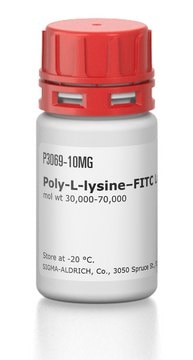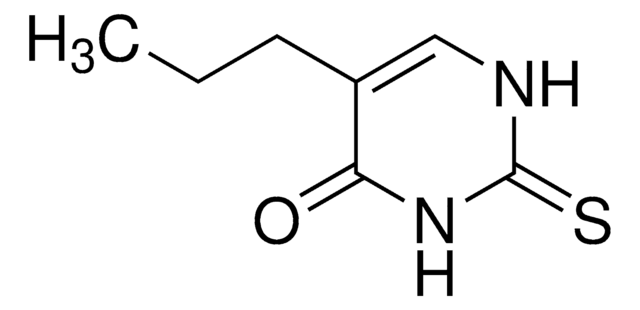P3755
6-Propyl-2-thiouracil
enzyme inhibitor
Synonym(s):
2,3-Dihydro-6-propyl-2-thioxo-4(1H)-pyrimidinone, 4-Hydroxy-2-mercapto-6-propylpyrimidine
About This Item
Recommended Products
description
enzyme inhibitor
Assay
≥99% (HPLC)
form
powder
mp
218-220 °C (lit.)
solubility
10% NH3: 100 mg/mL, clear to slightly hazy, colorless to faintly yellow
SMILES string
CCCC1=CC(=O)NC(=S)N1
InChI
1S/C7H10N2OS/c1-2-3-5-4-6(10)9-7(11)8-5/h4H,2-3H2,1H3,(H2,8,9,10,11)
InChI key
KNAHARQHSZJURB-UHFFFAOYSA-N
Gene Information
human ... DIO1(1733) , TPO(7173)
Looking for similar products? Visit Product Comparison Guide
General description
Application
Biochem/physiol Actions
Signal Word
Warning
Hazard Statements
Precautionary Statements
Hazard Classifications
Acute Tox. 4 Oral - Carc. 2
Storage Class Code
11 - Combustible Solids
WGK
WGK 3
Flash Point(F)
Not applicable
Flash Point(C)
Not applicable
Personal Protective Equipment
Certificates of Analysis (COA)
Search for Certificates of Analysis (COA) by entering the products Lot/Batch Number. Lot and Batch Numbers can be found on a product’s label following the words ‘Lot’ or ‘Batch’.
Already Own This Product?
Find documentation for the products that you have recently purchased in the Document Library.
Customers Also Viewed
Our team of scientists has experience in all areas of research including Life Science, Material Science, Chemical Synthesis, Chromatography, Analytical and many others.
Contact Technical Service












